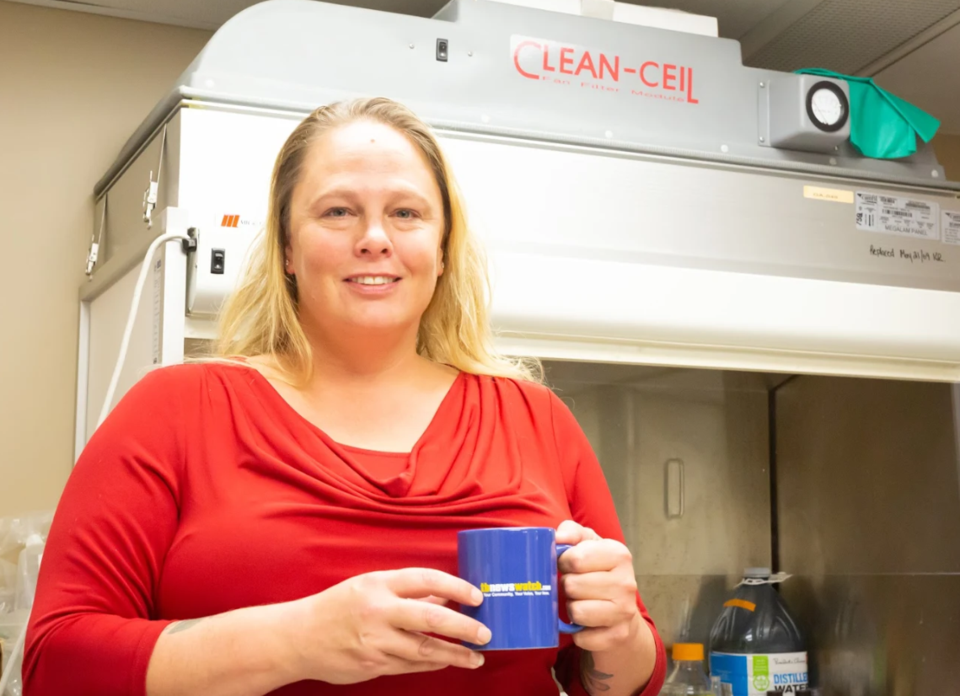THUNDER BAY -- Amber Kivisto founded BioNorth Solutions with Miranda Lock in 2014, while working on a PhD in environmental biotechnology at Lakehead University. Her PhD work involved using microbes to clean up mine tailings, so she thought a practical application of her research might be a good business idea.
BioNorth Solutions and its sister company Microbiate (also owned by Kivisto) research, manufacture and sell DIY soil remediation kits. Microbes are grown and added to peat, which is then vacuum packed to be shelf stable. The user just sprinkles it onto the contaminated area, adds the activator and roughs up the soil so that it doesn’t just blow away in the wind.
The microbes are selected for their ability to break down hydrocarbons - oil, gas, diesel and related products - into carbon dioxide and water. The procedure takes about three months, depending on the contaminant (gasoline is quicker than oil, for example) and the microbes can treat soil down to about three feet deep.
Such products do exist, particularly in the U.S., but BioNorth has its own niche: “our product works optimally at 15 C. American products work at 30 C, which wouldn’t work here,” explains Kivisto.
Cost effectiveness is a huge selling point, she says.
Traditional soil remediation involves scraping the affected soil away and taking it to the dump. But before the dump will accept it, you need to test the soil to show what contaminants are in there, which costs about $100. Dumping fees for a dump truck are $800. Add to that the cost of the labour and the cost of an excavator to remove the soil, and you are looking at thousands of dollars for a larger spill.
“If it’s like 100 cubic feet or so, we’ll be a quarter of the price. Also we are applicable for SR&ED (Scientific Research and Experimental Development) tax credits, so companies can get 30 per cent back of our fee and costs related to it.”
The spill kit took two years to develop, involving extensive research to isolate the helpful bacteria. “We did all the work ourselves, literally blood, sweat and tears,” Kivisto recalls.
“We are the only bioremediation company between Barrie and Winnipeg,” she says. “Sometimes people have been sold snake oil in the past and don’t have a good experience. So it’s a challenge trying to change the culture, because everybody just digs it up and sends it to the landfill, because that’s how things have been done for a long time.”
Do you want to see your business featured in Monday Morning “MUG”ing, click here and tell us your story.



